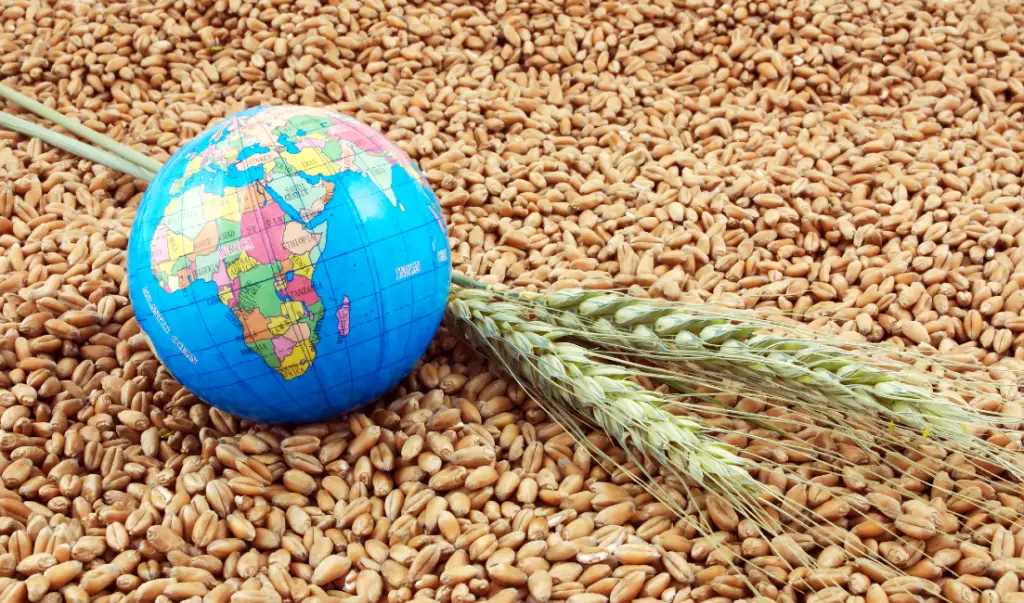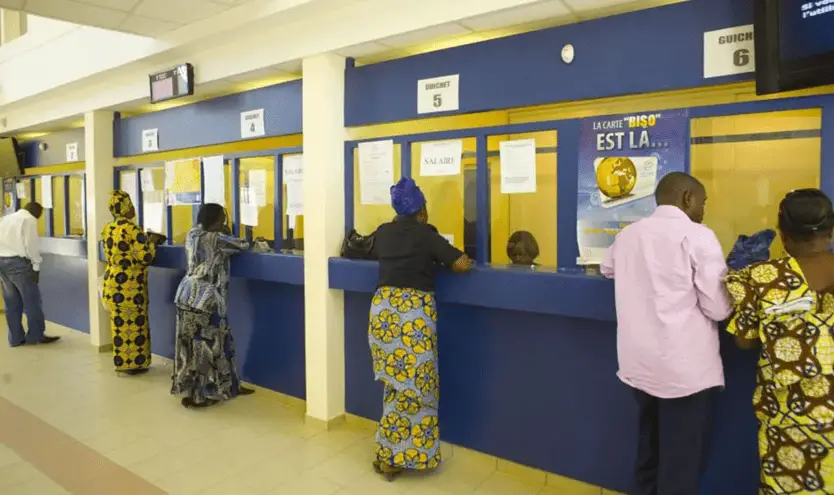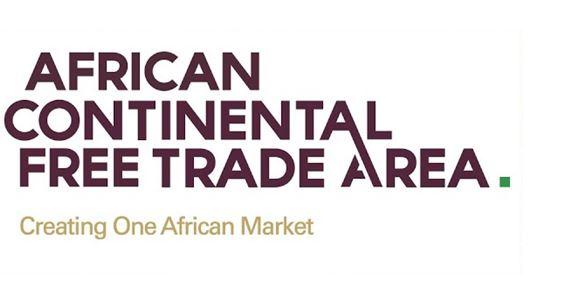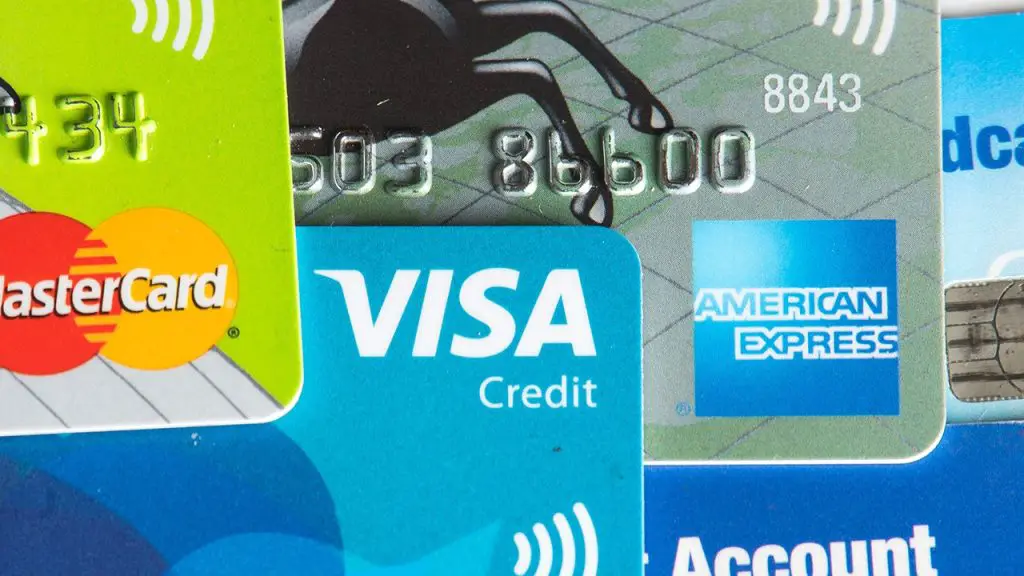- Africa’s Green Economy Summit 2026 readies pipeline of investment-ready green ventures
- East Africa banks on youth-led innovation to transform food systems sector
- The Washington Accords and Rwanda DRC Peace Deal
- Binance Junior, a crypto savings account targeting children and teens debuts in Africa
- African Union Agenda 2063 and the Conflicts Threatening “The Africa We Want”
- New HIV prevention drug is out — can ravaged African nations afford to miss it?
- From banking to supply chains, here’s how blockchain is powering lives across Africa
- Modern railways system sparks fresh drive in Tanzania’s economic ambitions
Browsing: Banks
Why is agriculture so important? The World Bank estimates that “Healthy, sustainable, and inclusive food systems are critical to achieving the world’s development goals. Agricultural development is one of the most powerful tools to end extreme poverty, boost shared prosperity, and feed a projected 9.7 billion people by 2050.
Growth in the agriculture sector is two to four times more effective in raising incomes among the poorest compared to other sectors. Agriculture is also crucial to economic growth: it accounts for 4% of global gross domestic product (GDP) and in some developing countries, it can account for more than 25% of GDP.”
Agriculture not only eliminates hunger, but its support and success will lead to the attainment of the world’s development goals, end poverty, and boost shared prosperity. CGAP, which published an article about “The Role of Financial Services in Reducing Hunger”, states that for the majority of the 1.4 billion of the world’s poor living on less than US$1.25 a day, agriculture is the main source of income and employment.
Enhancing financial literacy is only one of the numerous ways Africa’s youth may be prepared for the future. Stakeholders must simplify financial literacy education and make it practical. Without simplified and functional financial literacy, one could fall victim to the prevailing financial challenges in a highly changing world marked by technological advancements. Improving financial literacy in Africa’s youth will help improve financial inclusion.
Banks in Africa generally and in South Africa especially weathered the perfect storm caused by the COVID-19 pandemic. This is…
AfCFTA will be a game changer for Africa, but its success depends on certain enablers being present. The first and most obvious impediment and an obstacle to the initiative will be mustering the political will of the signatories to implement the necessary reforms to enable its success. This may not always be politically feasible or possible.
The less obvious enablers and the financial institutions on the African continent. Their presence and activities have a direct and strong bearing on the success of AfCFTA. One of the foremost bankers on the African continent, Sim Tshabalala, the chief executive of the continent’s largest banking institution by assets, is fond of saying that banking is a derived business. This means that banks butter their bread from the activities of economic agents.
If AfCFTA is to succeed in its quest to merge the various comparative advantages of the countries that constitute Africa it will need champion banks to support the intra and intercontinental trade activity from there being a single market and all participants, both local and foreign looking to make money. Africa will need champion banks to facilitate the flow of capital to worthwhile projects and ensure that the capital deployed into various activities earns the best returns for its providers.
There has been a decline in bank visits across Kenya, with customers opting to deposit cash via mobile money platforms…
Visa, for its part, has lodged an application seeking to dismiss the charges. In its defence, the payments platform company said that the people who posted the victims’ underage images and those who distributed and earned money from the material caused the alleged harm and not Visa, the Washington Post reports.
The company went on to argue that it had nothing to do with the operations of the websites run by Mind Geek which include adult entertainment websites where child sexual abuse videos have been featured. Since the news of child sexual abuse broke and the landmark ruling delivered by the California court, Visa has been at pains to distance itself from the lawsuit of which it is now a defendant. The company made a statement to the Washington Post where it condemned sex trafficking, exploitation, and child sexual abuse materials as “repugnant” to its values and purpose as a company.
The statement reads: “This pretrial ruling is disappointing and mischaracterizes Visa’s role and its policies and practices… Visa will not tolerate the use of our network for illegal activity. We continue to believe that Visa is an improper defendant in this case.” The application filed with the California court to be dismissed from the lawsuit on the grounds that Visa was an improper defendant was dismissed by Judge Carney. It is now alleged that Visa helped users on the internet to make money from illegal images.
Yet for SME and corporate lending, credit decisions remain an extended process as information is gathered manually and appraised over, sometimes, weeks, to establish the creditworthiness of the borrower.
The need to abandon such cumbersome processes has recently seen leading banks adopt technology, such as our CreditQuest, to automate credit origination, and manage credit workflow, appraisals, documents, customer ratings and credit decisions.
This kind of technology draws all current and historical credit data onto a unified platform, giving the bank’s analysts a true single customer view of credits and collaterals.
NMB is also listed on the Dar es Salaam Stock Exchange (DSE) and has been tracking rather promising records. According to DSE daily market highlights, NMB’s closing price stood at TShs. 2,340 and the previous closing price was TShs. 2,340.
The bank’s largest shareholders are strategic partners Arise B.V with a 34.9 per cent shareholding and the government of Tanzania with a 31.8 per cent shareholding.
According to NMB, alongside its financial achievement, “the Bank has also received several awards, highlighting the growth trajectory of the institution. In 2020, NMB’s achievements led to internationally acclaimed recognition as the Safest Bank in Tanzania by Global Finance magazine, and being named Best Bank in Tanzania for 8th consecutive time by Euromoney magazine,”
The banks themselves have little confidence in each other which is demonstrated by the absence of a real interbank lending market.
Perhaps most striking is the high degree of regulatory risk. Regulatory risk is one where a change in laws and regulations will materially impact a security, business, sector, or market. A change in laws or regulations made by the government or a regulatory body can increase the costs of operating a business, reduce the attractiveness of an investment, or change the competitive landscape in each business sector. In extreme cases, such changes can destroy a company’s business model.
NAIROBI, Kenya, Jun14 – The African Development Bank (AfDB) has unveiled a US$463.9 million 5.5-year Kangaroo bond. In a statement,…











